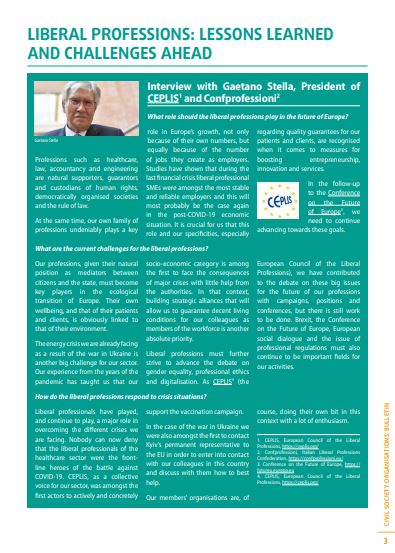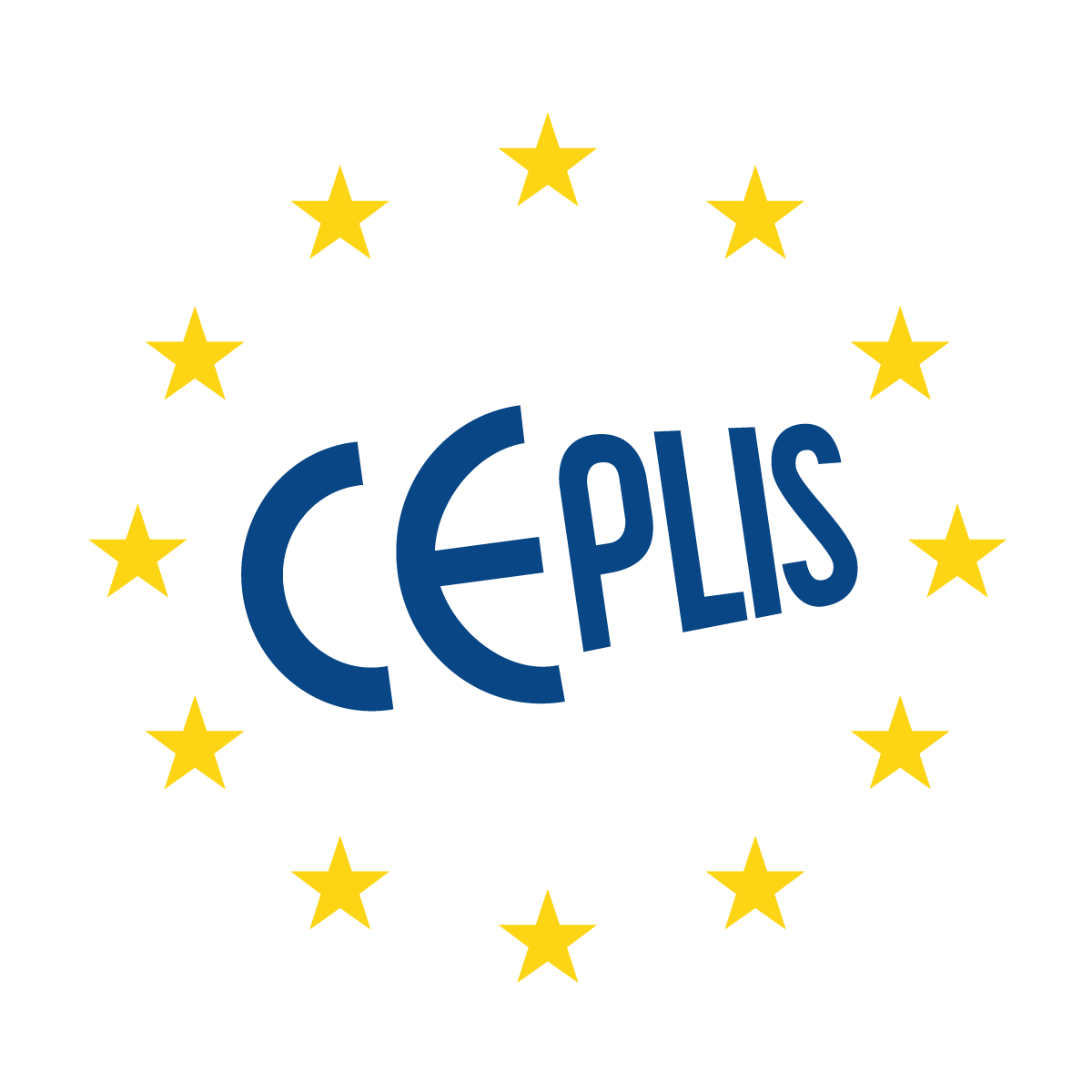Dans une interview publiée dans le Bulletin du Groupe des Organisations de la Société Civile du CESE (Groupe III), le Président du CEPLIS, Gaetano Stella, évoque les défis auxquels notre profession sera confrontée dans les années à venir :
What role should the liberal professions play in the future of Europe?
Professions such as healthcare, law, accountancy and engineering are natural supporters, guarantors and custodians of human rights, democratically organised societies and the rule of law.
At the same time, our own family of professions undeniably plays a key role in Europe’s growth, not only because of their own numbers, but equally because of the number of jobs they create as employers. Studies have shown that during the last financial crisis liberal professional SMEs were amongst the most stable and reliable employers and this will most probably be the case again in the post-COVID-19 economic situation. It is crucial for us that this role and our specificities, especially regarding quality guarantees for our patients and clients, are recognised when it comes to measures for boosting entrepreneurship, innovation and services.
In the follow-up to the Conference on the Future of Europe, we need to continue advancing towards these goals.
What are the current challenges for the liberal professions?
Our professions, given their natural position as mediators between citizens and the state, must become key players in the ecological transition of Europe. Their own wellbeing, and that of their patients and clients, is obviously linked to that of their environment.
The energy crisis we are already facing as a result of the war in Ukraine is another big challenge for our sector. Our experience from the years of the pandemic has taught us that our socio-economic category is among the first to face the consequences of major crises with little help from the authorities. In that context, building strategic alliances that will allow us to guarantee decent living conditions for our colleagues as members of the workforce is another absolute priority.
Liberal professions must further strive to advance the debate on gender equality, professional ethics and digitalisation. As CEPLIS (the European Council of the Liberal Professions), we have contributed to the debate on these big issues for the future of our professions with campaigns, positions and conferences, but there is still work to be done. Brexit, the Conference on the Future of Europe, European social dialogue and the issue of professional regulations must also continue to be important fields for our activities.
How do the liberal professions respond to crisis situations?
Liberal professionals have played, and continue to play, a major role in overcoming the different crises we are facing. Nobody can now deny that the liberal professionals of the healthcare sector were the frontline heroes of the battle against COVID-19. CEPLIS, as a collective voice for our sector, was amongst the first actors to actively and concretely support the vaccination campaign. In the case of the war in Ukraine we were also amongst the first to contact Kyiv’s permanent representative to the EU in order to enter into contact with our colleagues in this country and discuss with them how to best help. Our members’ organisations are, of course, doing their own bit in this context with a lot of enthusiasm.
Le numéro complet est disponible ici http://europa.eu/!mTqRdk


 English
English